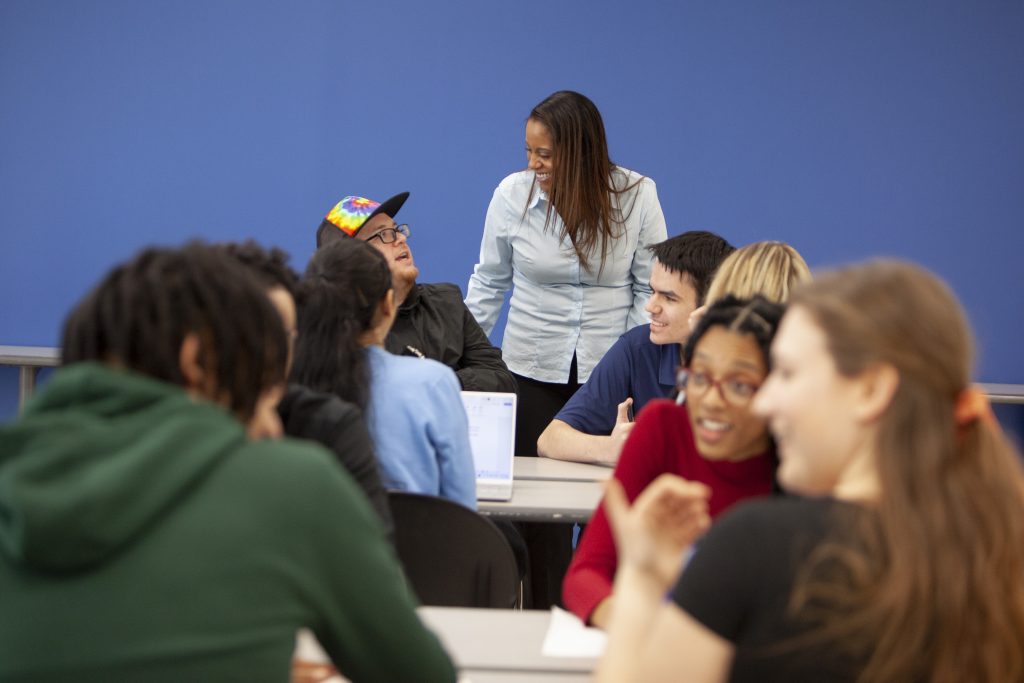
Fostering a Culture of Belonging: Four Insights You Need to Know
On a campus where everyone belongs, everyone is responsible.
“It is not one office or one individual that creates a culture of belonging,” said Dr. Penny MacCormack, chief academic officer at the Association of College and University Educators, said during a recent webinar hosted by ACUE. “It is everyone making the effort to learn and use the practices shown to ensure that every individual on our campuses feels seen, heard, and valued. It does, in fact, take a village.”
Available On-Demand: Fostering a Culture of Belonging Webinar
During the hour-long virtual event, more than 1,250 educators, staff, and higher education leaders gathered to discuss practical strategies and insights, including what they learned and implemented through ACUE certificate programs. ACUE’s newest microcredential, Fostering a Culture of Belonging, equips a wide range of roles and professionals—from presidents and deans to HR professionals, campus safety officers, and more—with practical and relevant perspectives, self-reflection practices, and high-quality resources.
Here are four takeaways from this inspiring conversation:
1. Relationships Matter
What does it mean to belong? How is that feeling different from feeling welcome?
For Dr. Toni L. Johnson, dean of academic services at North Central State College, part of the Ohio Association of Community Colleges, a sense of belonging is all about relationships.
“I have been in a lot of situations where I felt welcome. People were nice to me. They smiled at me. But I didn’t really feel like I belonged. I didn’t feel like I was comfortable enough to say anything, ask a question, participate in a certain way. Because I didn’t have relationships with those people.
2. Belonging Starts with Self-Reflection
To cultivate belonging across a campus community, having the right mindset is key for transformative change.
“It starts with you, internally,” said Ali Shah, a campus safety director at San Jacinto College. “You have to recognize your own implicit biases, recognize the mechanisms to overcome those biases, and lead from a place of equity and inclusivity.”
For Shah, that meant revisiting campus safety policies through an inclusive lens. It led to updating the department’s performance metrics for responding to incidents and resolving calls. Instead of exclusively measuring these interactions in seconds and minutes, Shah said, “We started reviewing those calls from an equity standpoint. Was it a positive interaction? Did the students feel like they had a voice to express themselves freely?”
“You can change the trajectory of a student’s academic and life experience by a simple positive interaction. That, to me, is a very powerful tool that we have,” said Shah. (Watch the clip.)
3. Develop Long-Term Impact for Student and Employee Retention
Research shows that a sense of belonging is a key predictor of student and employee retention and success. Experts noted that a growing body of research increasingly shows that feelings of belonging are so critical that it has led to a new acronym: Diversity, Equity, Inclusion, and Belonging (DEIB).
“There is a large body that is really demonstrating how critical this is to student success, as well as the success of faculty and staff, to have a sense of belonging on campus,” said Dr. Marlo Goldstein Hode, senior manager of strategic diversity initiatives at the University of Missouri–St. Louis.
Cohort-based online programs such as ACUE’s Fostering a Culture of Belonging, Dr. Goldstein Hode said, have the greatest potential for transformational impact because they establish and cultivate long-term communities of practice.
“This is a journey, not a destination. It is not a one-shot deal, and you really have to invest a lot of time and thought to make it meaningful.”
4. Fostering a Culture of Belonging Practices Can Be Implemented Right Away
Dr. MacCormack underscored that all of the recommended practices in ACUE courses are designed to be put into action immediately. For the first time, Fostering a Culture of Belonging, provides all campus roles with the opportunity to earn ACUE credentials relevant to their work.
“It is imperative that our course-takers not only learn about the complexity of DEIB concepts throughout this course, but also learn what they can do in their individual roles to foster a culture of belonging,” said Dr. MacCormack.
Participants shared inclusive learning practices that they have incorporated into their interactions with students. One example of a practice that leaders, instructors, and staff can immediately put to use is demystifying campus jargon, according to Evelyn R. Espinoza, director of advising at California State University, Los Angeles, who is featured in Fostering a Culture of Belonging.
“As higher education professionals, we know the ins and outs of the college language. We can demystify the campus vernacular for students, by clearly defining resources, using full names, with acronyms, and providing scaffolded support before and after they arrive on campus.”
Bring Fostering a Culture of Belonging to your campus and build a culture where everyone feels, seen, heard, and valued. Connect with us to learn how.

